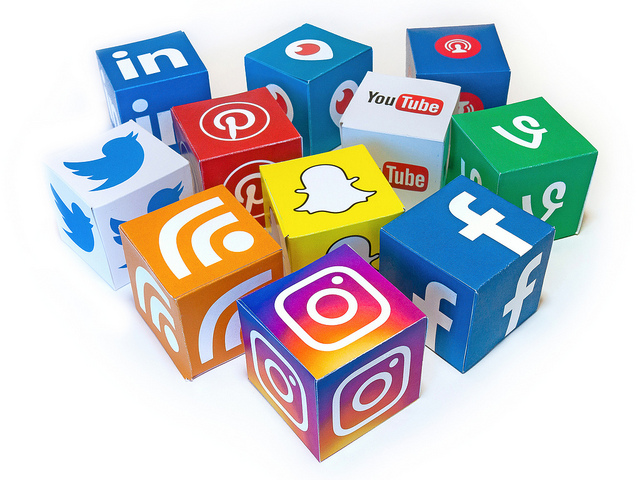- September 26, 2018
- Posted by: David Marshall
- Category: Business, Management

There are all kinds of stories about social media misbehavior. In the early days of social media, there were plenty of stories about people who would complain about their jobs or their supervisors on Facebook and Twitter only to be fired once the company found out about it.
Even today, there are stories of people saying and doing racist things that get reported on social media, only for them to be fired a day or two later. The companies (rightly) don’t want to be involved with someone who behaves so terribly that they embarrass themselves and the company they work for.
 But what about the person who doesn’t like the way a company is being run? A flight attendant who complains about their airline, a theme park employee who tells stories about terrible customers, a waiter who publishes a tell-all blog about their snooty diners.
But what about the person who doesn’t like the way a company is being run? A flight attendant who complains about their airline, a theme park employee who tells stories about terrible customers, a waiter who publishes a tell-all blog about their snooty diners.
Does a company have the right to terminate that employee, just because they don’t like what is being said about them?
Bottom line: Yes, they do.
For one thing, many companies are based in right-to-work states. That means there’s no union protection and a company doesn’t always need cause to fire their employees. This doesn’t mean they can violate federal employment law, but if an employer wants to fire an employee for wearing a t-shirt supporting a rival college’s football team, they can do it.
This also means employers have the same rights to terminate an employee if he or she posts anything that denigrates the employer on social media.
When I was in charge, the line I drew in the sand was just basic common sense. If you’re going to post anything on social media, and it has anything to do with the enterprise, then the enterprise has got the right to take action.
I was always clear and up front with employees: I said, “Yes, I will monitor social media.” It’s not fair to weaponize social media to vent your spleen or to otherwise hurt other individuals, your colleagues, or even your employer.
That’s like using kids using social media to bully other kids at school. That’s just absolutely intolerable. I saw social media usage as the real face of the employee, and the insight into who they really are. It certainly tells you how they’re really thinking, irrespective of how they represent what they’re thinking, especially on the job. In other words, if you’re racist on social media, you’re going to be racist (or at least harbor those secret thoughts) at work. And I wasn’t going to have it.
Can companies have a say in an employee’s health and exercise programs?
This is a big tougher. Can you draw the line at saying an employee can “only have X number of kids” or “must have at least X kids?” No, that’s too far.
Similarly, we couldn’t create rules saying employees couldn’t smoke or eat fried foods, or that they had to exercise three times a week. So instead, we had to encourage and reward positive behavior.
From a purely business standpoint, I always believed it was a very smart thing to have a very robust Wellness program at our company. That included things like the company paying for everyone to have blood work done and providing mammograms for women. We also extended this program to our associates’ spouses as well.
By doing this, I also discovered a relatively high percentage of our associates who don’t have a primary care provider. With this program, our people could have a medical professional who would help them monitor their health at least once a year.
I remember one case where we got to somebody in time before they actually had a stroke. And at least monthly there were medical professionals who came into the company and gave lectures on nutrition, health, and so on.
Finally, once a year, we paid for everyone to get a flu shot. That ended up reducing absenteeism and also ended up reducing healthcare costs. So not only did it have a human benefit, it also had a financial benefit.
And, as I wrote about a few weeks ago, it helped employee retention as well. Providing this extra care made people want to stay, which meant we reduced our turnover rates and our recruiting costs.
In the end, if an employee’s private behavior affects the employer, then the employer has some say in the employee’s private behavior. Think of Elon Musk and some of the things he’s said on social media, such as taking Tesla private again. It had a major effect on the stock prices, and so the shareholders had something to say about that — his private behavior had an effect on the company, and they were correct in their reaction.
Just like Elon Musk, anyone who posts on social media has constituents and people who are affected by what they do. And when that happens, the employer should have some say in what the employees can and can’t do.
I’ve been a manufacturing executive, as well as a sales and marketing professional, for a few decades. Now I help companies turn around their own business, as well as speak at conferences, trade shows, and chambers of commerce. If you would like more information, please visit my website and connect with me on Twitter or LinkedIn.
Photo credit: Blogtrepreneur at HowToStartaBlogOnline.net (Flickr, Creative Commons 2.0)

